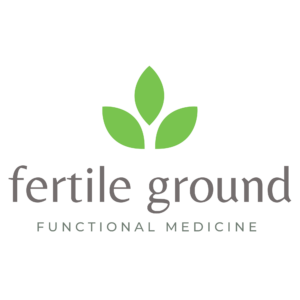There are many ways to get pregnant, but there is no guarantee. This blog post will explore the mind-body connection in fertility and what you can do to increase your chances of getting pregnant.
It’s not uncommon for couples trying to conceive to experience stress, anxiety, or even depression when they don’t seem able to make it happen. However, these emotions can have a direct impact on how fertile you are. It’s important that if at any point you’re feeling stressed out about conceiving that you talk with your partner and doctors about it so they can help ease some of the pressure off of yourself.
There are also things that may be impacting your fertility other than just mental health issues like smoking or drinking alcohol which could be harmful for the baby. If you’re trying to get pregnant and are not having any luck it is important to talk with your doctor about what you can do together to help increase your chances of conceiving.
Here we will explore some of the ways that stress impacts fertility along with what you can do to manage that stress and improve your chances of conceiving.
1. What is the mind-body connection?
The mind-body connection refers to how our mental health impacts our physical health. There are different ways that the mind-body connection works, but in this case we’ll be focusing on how stress can impact your fertility and ultimately your ability to conceive. Stress isn’t only impacting your chances of conceiving, but also implantation and your pregnancy after you have conceived.
2. How does stress impact fertility?
When you are stressed out the hypothalamus gland located in your brain sends signals to all of the other glands that help create cortisol. This is a hormone necessary for energy production. Unfortunately, when there is too much cortisol in your body then it signals the adrenal glands to release another hormone called pregnenolone. Pregnenolone is actually converted into progesterone, testosterone, and estrogen which causes you to have more trouble conceiving as well as a lower chance of implantation. This is because those hormones aren’t necessary when you’re stressed out, but are necessary for fertility. So you can see how stressed out you might be, this process actually prevents you from getting pregnant as well as making it difficult to maintain a growing pregnancy once you have conceived.
3. How can I reduce my stress levels to improve fertility?
This is an important question because stress and anxiety impact your body in many different negative ways. Not only is it important for your fertility, but also for your health as a whole to help reduce those stress levels. There are many things you can do from making lifestyle changes to taking certain supplements that may make a difference in how stressed out you are on a day-to-day basis. Here we’ll explore some different options you can try to reduce your stress levels and manage anxiety.
A) What can I do to reduce my stress levels everyday?
One of the biggest ways that couples struggle with conceiving is because they don’t feel like they have much control over their fertility or getting pregnant. It’s important when trying to conceive to make changes in your life to help manage your stress levels every day. These are some of the most important things you can do in order to reduce your stress and anxiety daily.
Combine exercise, meditation, and relaxation into your everyday life
Exercise is one of the best ways to ease stress naturally because it releases endorphins which are necessary for happiness. This doesn’t mean that you need to exercise for hours, but instead by alternating between different types of exercises like cardio and weight training will give your body the energy it’s looking for while easing stress at the same time.
Meditation is one of those things that people often push aside, but it can really help bring your cortisol levels down. There are a number of different types of meditations you can try in order to see which work best for you. Many people find guided meditation particularly helpful when they are trying to manage stress and anxiety levels.
Relaxation is a vital part of reducing your stress levels because it’s important that you take time for yourself each day to do something that you enjoy. This is particularly important when you are trying to conceive because it can help reduce stress levels, but also boost your fertility. Relaxing gives your body the time it needs to heal which allows you to be healthy and feel good each day.
B) What supplements can help me reduce my stress?
There are some different supplements on the market that can help you reduce the amount of stress and anxiety you feel each day. These supplements are different because they contain specific ingredients that can help to decrease your cortisol levels which will ultimately improve your chances of conceiving as well as maintaining a pregnancy once you have conceived.
There are some different types of supplements that can help relieve stress, but here are a few of the most common ones that have been shown to have some effect on how much stress you feel throughout the day.
Ashwagandha is one of those supplements that people find particularly helpful when they’re trying to reduce their anxiety levels. This is because it helps to balance out your cortisol levels by helping you to reduce the amount of stress you feel each day which results in an increase in your fertility.
Ginseng is another natural supplement that can help with anxiety and stress levels because it’s been shown to balance out cortisol levels in the body. This allows for improved fertility when combined with other supplements like ashwagandha.
Vitamin D is one of the most important vitamins to take when trying to reduce stress in your life because it impacts your body in so many different ways. This includes supporting the production of hormones like cortisol which is essential for fertility and can improve both egg quality and sperm count when you are trying to conceive.
C) What are some foods I should be eating to reduce my stress?
There are certain types of foods that can help you reduce your cortisol levels which will ultimately decrease the amount of stress you feel each day. If you’re looking for specific ways to eat in order to improve your fertility then these are some of the best things you can incorporate into your diet.
Fruits and vegetables are a great way to improve your fertility because they help you to reduce cortisol levels. Many people find that this is particularly helpful when they have high stress jobs because cortisol impacts egg quality as well as sperm count which can both impact how difficult it will be for you to conceive.
Whole grains, lean proteins, and healthy fats are some of the best foods to include in your diet when you’re trying to manage stress levels because they help to balance out cortisol levels by keeping it lower during stressful situations.
There are a number of different things that can affect how much stress you feel each day, but one important thing is taking good care of yourself. By making sure you are eating the right foods, drinking enough water, exercising regularly, and getting your sleep each night you can improve both your stress levels as well as your fertility.
Another good way to reduce stress in your life is by exercising on a regular basis. This helps to give your body time away from dealing with the stressors of life which allows it to recover. That doesn’t mean that you have to go out and run a marathon, but rather find something that is challenging enough for your body to make physical activity part of your daily routine.
Finding something you enjoy doing each day can be difficult when you’re feeling stressed or anxious, but sometimes all it takes is one good experience to make exercise part of your lifestyle. Whether you enjoy taking a walk before dinner, going for a bike ride after work, or playing a sport with your friends each week there is something out there that will help you reduce stress in life while improving fertility at the same time.
There are many things in life that can cause anxiety and stress when you’re trying to conceive, but the most important thing is finding a way to manage it. These supplements and lifestyle changes can help in that process by making sure your stress levels stay low and ultimately improve your fertility in the process.
As always, check with your doctor before starting any new supplements or changing anything in your daily routine if you are trying to conceive.







